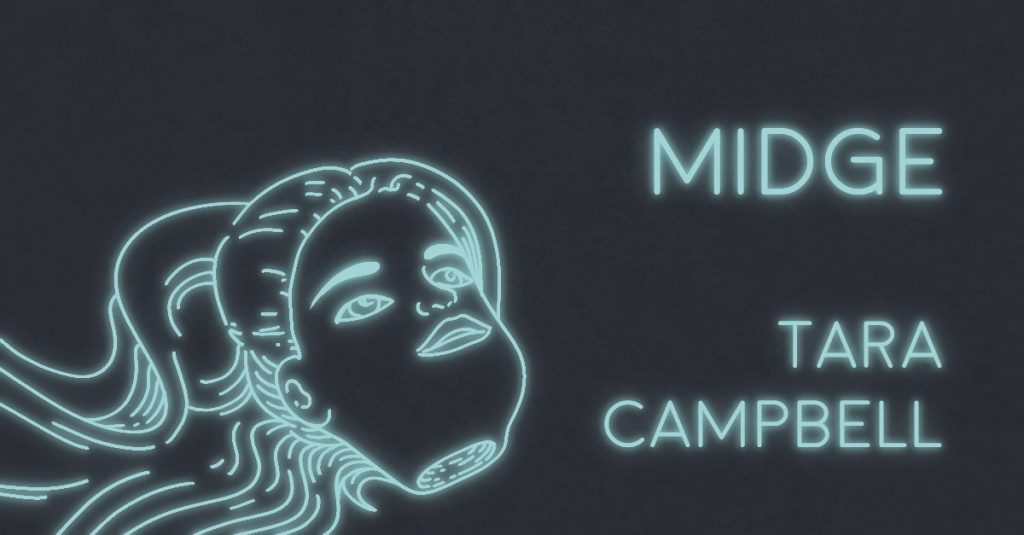
MIDGE by Tara Campbell
“I remember sailing in a ship.” Skipper’s voice fills the musty darkness of the drawer. “I mean, it was a small ship, more like a boat, I guess, and we were just floating, really, which maybe some people wouldn’t call sailing, but anyhow, I liked it.” Her tone brightens with the details. “It was a warm day but cool down by the water. The girl had taken us down there—” “What was the girl’s name?” I ask. I hear Skipper’s intake of breath, the way the memory catches in her throat, even though she technically doesn’t have one anymore, meaning a throat,…
